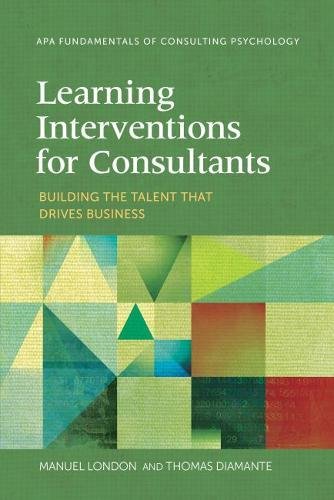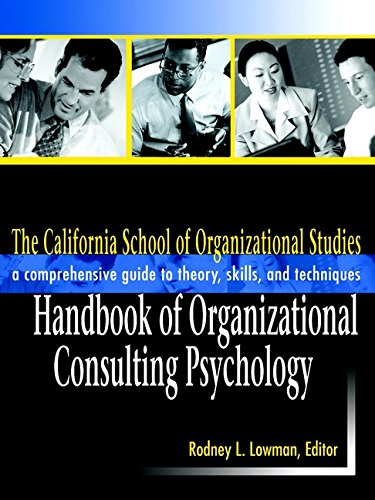Top consulting psychology
If you looking for consulting psychology then you are right place. We are searching for the best consulting psychology on the market and analyze these products to provide you the best choice.
Best consulting psychology
1. An Introduction to Consulting Psychology: Working with Individuals, Groups, and Organizations (Fundamentals of Consulting Psychology)
Feature
Amer Psychological AssnDescription
Unlike all other gynecology books that focus solely on either the medical OR surgical aspects of the discipline Williams Gynecology provides both in one competitively priced volume Students residents and physicians no longer have to choose which book to purchase or pay double for the content A team of medical illustrators were contracted to complete hundreds of original illustrations for both the surgical atlas and medical reference portions of Williams Gynecology The result is an entirely unique and instructionally consistent art program unlike any other-Provided by publisher2. Learning Interventions for Consultants: Building the Talent That Drives Business (Fundamentals of Consulting Psychology)
Description
Innovation is one of the key drivers ofsuccess in modern business, and continuous learning is what drives innovation. Building on the theory and practice of consulting psychology and the science of learning, along with principles of human resources development, this book articulates a fivestep process for designing and delivering effective learning interventions for individual employees, teams, and entire organizations. This process includes conducting a needs analysis, developing a contract that sets reasonable goals and expectations for clients, designing learning methods to meet the organization's needs, implementing the program and tailoring it as needed, and evaluating outcomes to ensure ongoing improvement.
The book also outlines three distinct types of learning---adaptive, generative, and transformative---that help employees cultivate essential skills and adapt their behaviors to improve job performance and promote organizational change. Guidelines for blending new learning technologies---including games and artificial intelligence---with inperson workshops are also reviewed. Case examples bring these learning methods to life, demonstrating how they are applied in real-world settings.
The book also outlines three distinct types of learning---adaptive, generative, and transformative---that help employees cultivate essential skills and adapt their behaviors to improve job performance and promote organizational change. Guidelines for blending new learning technologies---including games and artificial intelligence---with inperson workshops are also reviewed. Case examples bring these learning methods to life, demonstrating how they are applied in real-world settings.
3. The California School of Organizational Studies Handbook of Organizational Consulting Psychology: A Comprehensive Guide to Theory, Skills, and Techniques
Feature
Used Book in Good ConditionDescription
Discover a wealth of issues in the field of consulting psychologywith this landmark book. Explore key topics in assessment andevaluation, building teams, executive coaching, career counseling,interpersonal conflicts and relationships, benefit design,personality testing, and much more. Learn to delineate and betterunderstand the wide array of information you are faced with, andbecome more adept and knowledgeable in the field of consultingpsychology. This comprehensive volume has expert contributorsrecruited by the volume's editor--himself an eminent educator andpractitioner in the field.You will get:
- Special issues in consulting to specific types of organizationsincluding industry, schools, government, non-profit, andinternational
- Informative guidelines for professional practiceprocedures
- Organized sections on individual, group and organizationalissues
- And much more!
4. Consulting Psychology: Selected Articles
Feature
Used Book in Good ConditionDescription
For over 50 years, Harry Levinson, a pioneer in the field of organizational consulting psychology, has applied his extensive clinical expertise to the understanding of organizational assessment and intervention. In this volume, editors Freedman and Bradt present 18 of Levinson's landmark contributions that explore how and why consultants diagnose organizational and managerial pathology. These chapters showcase Levinson's astute clinical and counseling insights on organizational diagnosis, leadership, consultation, and stress. I/O and business management consultants will learn how to expertly apply these techniques to various organizational problems as well as enhance their own self-reflective awareness.5. The Ethical Practice of Consulting Psychology (Fundamentals of Consulting Psychology)
Description
Psychologists who work in business and other organizational settings encounter unique ethical issues that are not found in traditional clinical practice. This volume provides an overview of these issues forconsulting psychologists, graduate students, and practitioners in other fields who want to transition to organizational consulting. Using the APA Ethics Code as its foundation, the book teaches readers how to make ethical decisions when conducting assessments and applying interventions with individual employees, work groups, and entire organizations, small and large.
Authors Rodney Lowman and Stewart Cooper explore common themes in ethical practice, including informed consent, confidentiality, multiple relationships, conflicts of interest, and competence. They demonstrate how these issues manifest differently in the work environment through vivid case examples that bring to life the concrete work of consulting psychologists. These informative vignettes teachreaders how to negotiate complex challenges, such as when organizational demands and corrupt business practices come into conflict with psychologists ethical responsibilities. Special attention is also given to emerging areas of practice, including telepsychology, multinational and multicultural consulting, and coaching.
Authors Rodney Lowman and Stewart Cooper explore common themes in ethical practice, including informed consent, confidentiality, multiple relationships, conflicts of interest, and competence. They demonstrate how these issues manifest differently in the work environment through vivid case examples that bring to life the concrete work of consulting psychologists. These informative vignettes teachreaders how to negotiate complex challenges, such as when organizational demands and corrupt business practices come into conflict with psychologists ethical responsibilities. Special attention is also given to emerging areas of practice, including telepsychology, multinational and multicultural consulting, and coaching.
6. Specialty Competencies in Organizational and Business Consulting Psychology (Specialty Competencies in Professional Psychology)
Description
Originally termed "Industrial-Organizational Psychology (I/O)," practitioners of this specialty emanate from varying backgrounds in business-psychology related fields. Although it was one of the "original four" specialties of the American Board of Professional Psychology established in 1947, the domain of contemporary I/O professional practice can best be thought of as a "hybrid" across multiple traditions. For this volume in the series, Jay Thomas describes this particular hybrid model. The original board reflecting the specialty of I/O psychology (i.e., the American Board of Industrial and Organizational Psychology) within the greater organization of the American Board of Professional Psychology (which at the time of this writing encompasses 13 differing specialty boards in professional psychology), reconstituted itself in 2005 to be the "American Board of Organizational and Business Consulting (OBC) Psychology." This name change was made in order to best capture the notion that specialists in this area can be educated and trained (and practice) in related, but somewhat differing traditions. Readers interested in this specialty area within psychology will find this text invaluable as the most current description of the competencies thought important to help define the OBC psychologist.Series in Specialty Competencies in Professional Psychology
Series Editors
Arthur M. Nezu and Christine Maguth Nezu
As the field of psychology continues to grow and new specialty areas emerge and achieve recognition, it has become increasingly important to define the standards of professional specialty practice.
Developed and conceived in response to this need for practical guidelines, this series presents methods, strategies, and techniques for conducting day-to-day practice in any given psychology specialty. The topical volumes address best practices across the functional and foundational competencies that characterize the various psychology specialties, including clinical psychology, cognitive and behavioral psychology, school psychology, geropsychology, forensic psychology, clinical neuropsychology, couples and family psychology, and more. Functional competencies include common practice activities like assessment and intervention, while foundational competencies represent core knowledge areas such as ethical and legal issues, cultural diversity, and professional identification. In addition to describing these competencies, each volume provides a definition, description, and development timeline of a particular specialty, including its essential and characteristic pattern of activities, as well as its distinctive and unique features.
Written by recognized experts in their respective fields, volumes are comprehensive, up-to-date, and accessible. These volumes offer invaluable guidance to not only practicing mental health professionals, but those training for specialty practice as well.
7. Individual Assessment: As Practiced in Industry and Consulting (Applied Psychology Series)
Feature
Used Book in Good ConditionDescription
Individual Assessment is a professional practice important to Human Resource Managers, Executives and anyone making decisions about employees. Finally, we now have a clear, practical guide with methodologically-grounded descriptions of how to successfully do it. The authors have put together a unique new book with the following key features:*case studies and applied examples showing "how to" conduct individual assessment;
*the book provides the reader with a conceptual structure and the research and literature supporting the process; and
* it can be used as a text or supplemental text in courses on Personnel Selection, Assessment, Human Resources and Testing.
This book will take Individual Assessment to an entirely new level of understanding and practice, and into a new era of professional research and activity.
8. Using Feedback in Organizational Consulting (Fundamentals of Consulting Psychology) (Division 13: Fundamentals of Consulting Psychology)
Description
Feedback is an essential part of communication, coaching, management, and human resource practices. Yet the essential elements that make feedback more effective often fail to go beyond the pages of academic journal articles and into the workplace where they could greatly improve communication and performance. This book is an easy-to-use resource that applies classic and current research findings to create actionable, evidence-based tactics that consulting psychologists, consultants, managers, and HR personnel can use to improve feedback exchanges in any work environment.The authors present a simple and straightforward model of the feedback process that includes four critical elements that can make or break a feedback exchange:
the actions and behaviors of the feedback provider,
the content of the message,
the beliefs and perceptions of the feedback recipient, and
the context in which feedback is provided.
Each chapter includes a case example that highlights key takeaways from the research and illustrates how consultants can apply these concepts and strategies in real scenarios.
9. Psychological Consulting To Management












Recent Comments